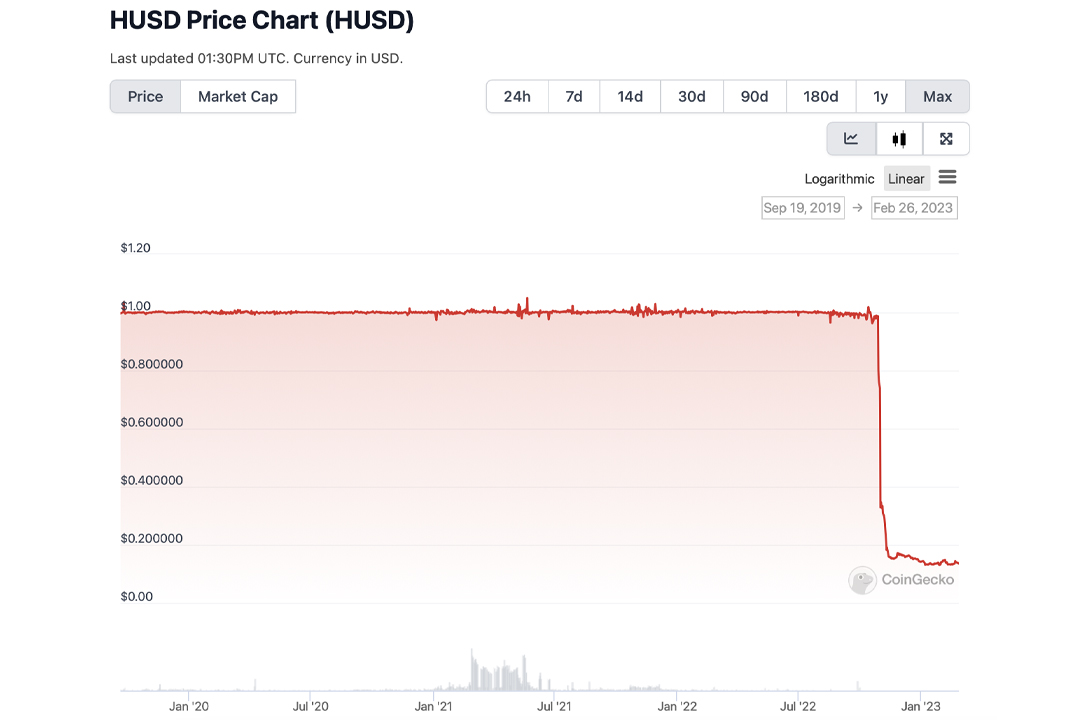
2022 was a year of phenomenal cryptocurrency blowouts, as several projects collapsed and many more are on life support after the entire ecosystem was shattered. The fallout from these digital currency projects has not only removed billions of dollars in value from the crypto economy, but also eroded trust. The following is a look at six high-profile cryptocurrency project implosions that took place during 2022’s crypto winter.
A Look at 5 Crypto Assets That Fell From Glory Amid the Crypto Market Downturn
History shows that there have been many failures in the cryptocurrency market economy over the years, and a great example is how eight out of the top ten coins on May 5, 2013, have basically been forgotten despite the fact that some still hold value. Coins such as freicoin (FRC), terracoin (TRC), devcoin (DVC), and mincoin (MNC) are all distant memories now. During the 2022 crypto winter, several high-profile crypto projects imploded. Below is a summary of these project failures or cryptocurrency assets that have seen their value slashed and communities decimated.

Celsius (CEL)
On Jan. 1, 2022, the crypto asset celsius (CEL) was trading for $4.26 per coin, and it was the 93rd largest cryptocurrency in terms of market capitalization at the time. CEL was essentially an exchange token, and the now-bankrupt crypto lender Celsius advertised the ERC20 token as “the backbone of the Celsius Network.” However, on June 13, 2022, the cryptocurrency lender paused all operations and halted withdrawals, and 30 days later, Celsius filed for bankruptcy protection.
Since June 13, CEL has been extremely volatile, and these days the ERC20 token trades for $0.48 per unit, which is 88.73% lower than its value on the first day of 2022. Ownership of the CEL is extremely concentrated, as more than 38% of the entire supply is locked in the bankrupt company’s wallets, and 100 CEL wallets hold 98.90% of the entire supply. Novawulf Digital Management has been revealed as the sponsor of the company’s reorganization plan.
Terra (LUNA)
421 days ago on Jan. 1, 2022, terra (LUNA) was the ninth-largest cryptocurrency in terms of market value, with a market cap of $31.86 billion. On that day, LUNA was trading for $88.08 per unit, and the network’s stablecoin UST was still pegged to the U.S. dollar. Today, LUNA is ranked 55th, and LUNA tokens trade for less than one U.S. cent at $0.00016135 per unit. UST is no longer pegged to the dollar and trades for $0.028 per coin.
After the fallout, Terra rebranded and launched a new LUNA coin, while the original LUNA became LUNA Classic (LUNC). The head of Terraform Labs, the company behind the Terra blockchain ecosystem, Do Kwon, has been charged by the U.S. Securities and Exchange Commission with defrauding investors. Although most of the Terra development community moved on to LUNA 2.0, LUNC still has a small group of dedicated supporters.
HUSD
HUSD is a stablecoin that depegged from the U.S. dollar on Oct. 27, 2022. It had been pegged to the greenback since Sept. 19, 2019, but now trades at $0.135 per unit. Although HUSD is no longer a stablecoin, its market valuation is still $25.64 million. However, over the past 24 hours, HUSD has only seen $11,830 in trading volume and the token is only listed on a few exchanges.

There are still 187,817,004 HUSD coins in circulation and 9,448 unique addresses hold a HUSD coin balance. Typically, less than five HUSD transactions are made daily. While HUSD’s current market value is just over $25 million, it reached a peak of over $1 billion on May 23, 2021.
Voyager (VGX)
Voyager Token (VGX) is another cryptocurrency that has lost considerable value since Voyager Digital paused operations and filed for bankruptcy protection. In January 2022, a single Voyager Token was trading for $2.56, but today it’s down to $0.45. Like Celsius (CEL), VGX has been able to hold some value as some investors hope the firm’s restructuring plan could bolster the exchange token.
Similar to CEL, VGX is very concentrated, with 6,267 unique addresses holding VGX, but 100 holders own 98.6% of the coins in circulation. Typically, fewer than 150 VGX transactions are made on a daily basis.
FTX Token (FTT)
Another exchange token, ftx token (FTT), tied to a bankrupt entity, has also significantly dropped in value since FTX collapsed during the first week of November 2022. On January 1, 2022, FTT was valued at $38.70 per coin and ranked as the 34th largest cryptocurrency. Today, FTT is valued at $1.49 per coin, and now that the entire supply has been released from the FTX token contract deployer, the crypto asset’s rank is not applicable.
Similar to CEL and VGX, there is some hope that FTT could rebound if FTX manages to restructure part of its business. For instance, after the new FTX CEO, John J. Ray III, discussed the possibility of rebooting parts of FTX, the FTT token increased significantly in value. FTT is not available on exchanges like it used to be, as some exchanges blocked deposits after millions in FTT were illicitly released from FTT’s main deployer address. FTT is also highly concentrated, with the top 100 holders owning 99.20% of the entire FTT supply.
What are your thoughts on the five high-profile crypto assets that fell from grace last year? Share your insights in the comments section below.
#MarketUpdates, #Addresses, #Bankruptcy, #Blockchain, #BounceBack, #CEL, #Ceo, #Circulation, #Concentration, #CryptoAssets, #Cryptocurrencies, #Deployer, #Deposits, #DoKwon, #ERC20, #ExchangeTokens, #Fraud, #FTT, #Ftx, #HOPE, #HUSD, #Illicit, #Investors, #LUNA, #MarketCapitalization, #MarketValuation, #Restructuring, #SEC, #Stablecoin, #Stablecoins, #Terra, #Trading, #Transactions, #UST, #VGX, #Voyager, #Wallets